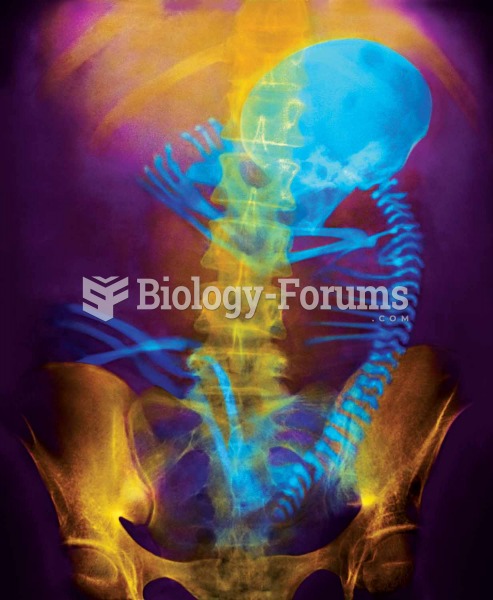|
|
|
Approximately 500,000 babies are born each year in the United States to teenage mothers.
People with high total cholesterol have about two times the risk for heart disease as people with ideal levels.
Sildenafil (Viagra®) has two actions that may be of consequence in patients with heart disease. It can lower the blood pressure, and it can interact with nitrates. It should never be used in patients who are taking nitrates.
Blood in the urine can be a sign of a kidney stone, glomerulonephritis, or other kidney problems.
Immunoglobulin injections may give short-term protection against, or reduce severity of certain diseases. They help people who have an inherited problem making their own antibodies, or those who are having certain types of cancer treatments.







